Gregory I, Pope
Moralia, sive expositio in Job. Rome: apud Sanctum Marcum [Vitus Puecher], 5 September 1475
Royal folio (445 x 318mm.), 364 leaves, of 366 (lacking the first leaf—the verso with a bibliographical note about this edition of the work addressed to Pope Sixtus IV—as well as final blank leaf), double column (four columns in register), 58 lines, roman type, rubricated throughout: nearly 100 four- to six-line initials in red, and FOUR SIX TO NINE-LINE INITIALS IN DECORATED BLUE WITH ELABORATE RED PENWORK, some neat fifteenth-century marginal annotations, original thick wooden boards with later pigskin spine with a vertical row of alternating stamps in blind showing a stag inside a lozenge and a griffin inside a circle, thick raised bands, apparently original vellum label on front board (later paper label on back cover), first folio with large paper repair at upper right, obscuring most of 32 lines of one column of index on both sides, much smaller loss on next two leaves of index (a total of perhaps 40 words or numbers partly affected on those two leaves); small, neat repairs at very bottom margin of final two quires (away from text), minor wax stain at fore edge of a few leaves, other, binding refurbished, lacking clasps and catches
A TALL COPY of the second book to be produced by an early Roman press, and the second dated edition of this major work. The latest of the Latin Church Fathers and the first monk to be elected pope, Gregory the Great marks the transition from late antique to medieval theology. His Moralia, conceived as a commentary on the book of Job and begun when he was a young papal envoy at Constantinople, is a guide to the Christian life, written in simple, direct language which transforms the thought of Augustine into a practical manual of behaviour. The press that identifies itself as “apud S. Marcum,” or “by Saint Mark’s,” was apparently headed by the elusive Vitus Puecher, to whom ISTC assigns 19 books, mostly secular and on legal topics, printed between 1475 and 1478.
REFERENCES: Goff G-428; ISTC ig00428000
PROVENANCE: Capuchin monastery, Bergamo, bookplate; the monastery of Santa Maria Annunziata, Varese, inkstamps
Gregory I, Pope
Moralia, sive expositio in Job. Rome: apud Sanctum Marcum [Vitus Puecher], 5 September 1475
Royal folio (445 x 318mm.), 364 leaves, of 366 (lacking the first leaf—the verso with a bibliographical note about this edition of the work addressed to Pope Sixtus IV—as well as final blank leaf), double column (four columns in register), 58 lines, roman type, rubricated throughout: nearly 100 four- to six-line initials in red, and FOUR SIX TO NINE-LINE INITIALS IN DECORATED BLUE WITH ELABORATE RED PENWORK, some neat fifteenth-century marginal annotations, original thick wooden boards with later pigskin spine with a vertical row of alternating stamps in blind showing a stag inside a lozenge and a griffin inside a circle, thick raised bands, apparently original vellum label on front board (later paper label on back cover), first folio with large paper repair at upper right, obscuring most of 32 lines of one column of index on both sides, much smaller loss on next two leaves of index (a total of perhaps 40 words or numbers partly affected on those two leaves); small, neat repairs at very bottom margin of final two quires (away from text), minor wax stain at fore edge of a few leaves, other, binding refurbished, lacking clasps and catches
A TALL COPY of the second book to be produced by an early Roman press, and the second dated edition of this major work. The latest of the Latin Church Fathers and the first monk to be elected pope, Gregory the Great marks the transition from late antique to medieval theology. His Moralia, conceived as a commentary on the book of Job and begun when he was a young papal envoy at Constantinople, is a guide to the Christian life, written in simple, direct language which transforms the thought of Augustine into a practical manual of behaviour. The press that identifies itself as “apud S. Marcum,” or “by Saint Mark’s,” was apparently headed by the elusive Vitus Puecher, to whom ISTC assigns 19 books, mostly secular and on legal topics, printed between 1475 and 1478.
REFERENCES: Goff G-428; ISTC ig00428000
PROVENANCE: Capuchin monastery, Bergamo, bookplate; the monastery of Santa Maria Annunziata, Varese, inkstamps


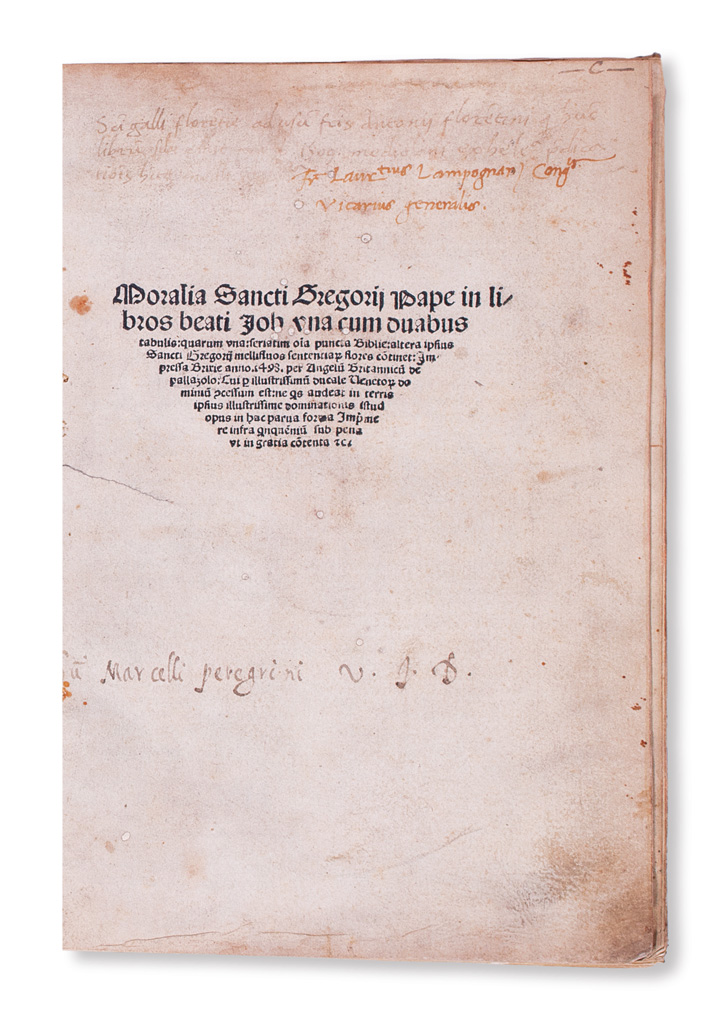
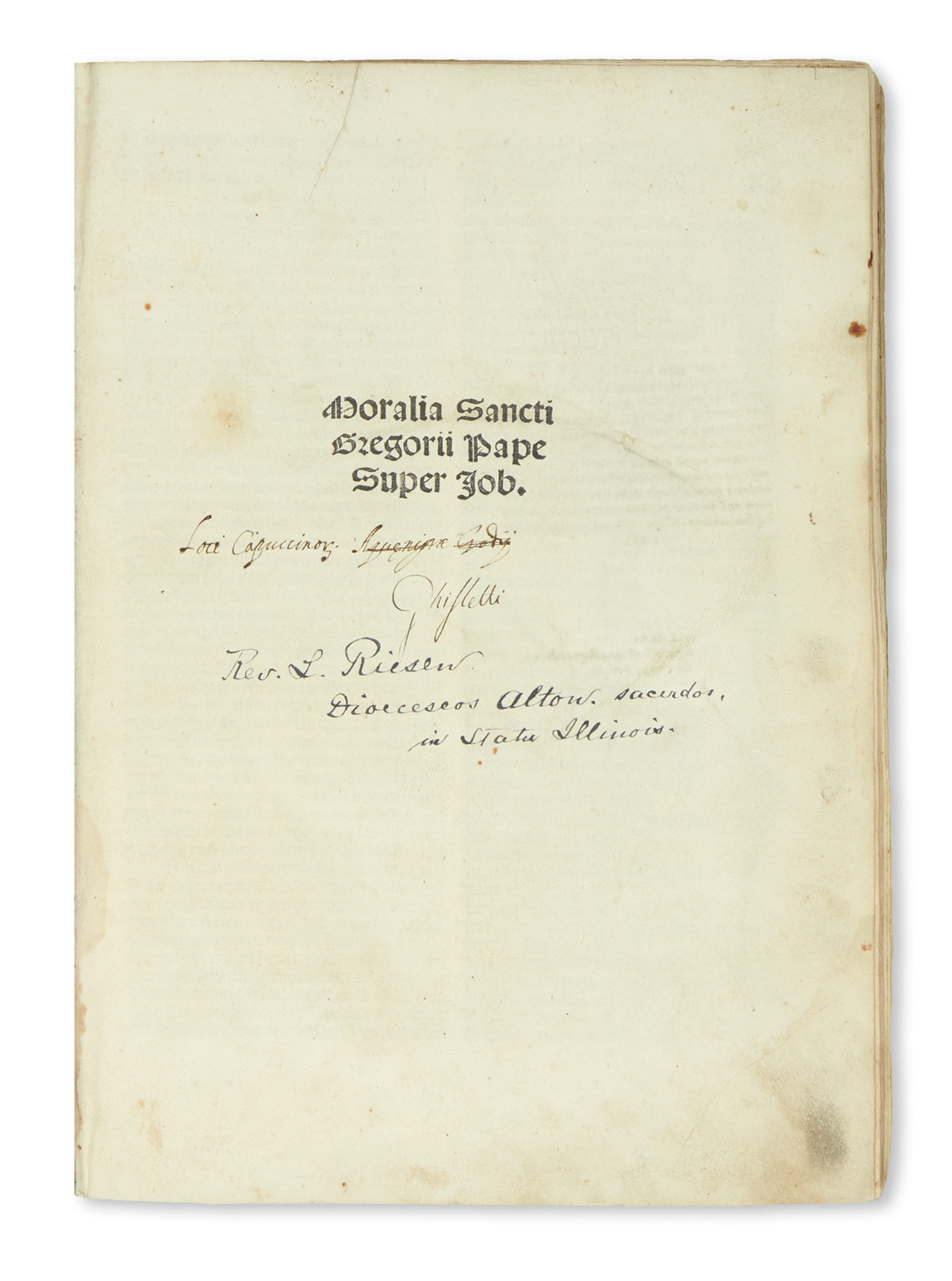

.jpg)
.jpg)

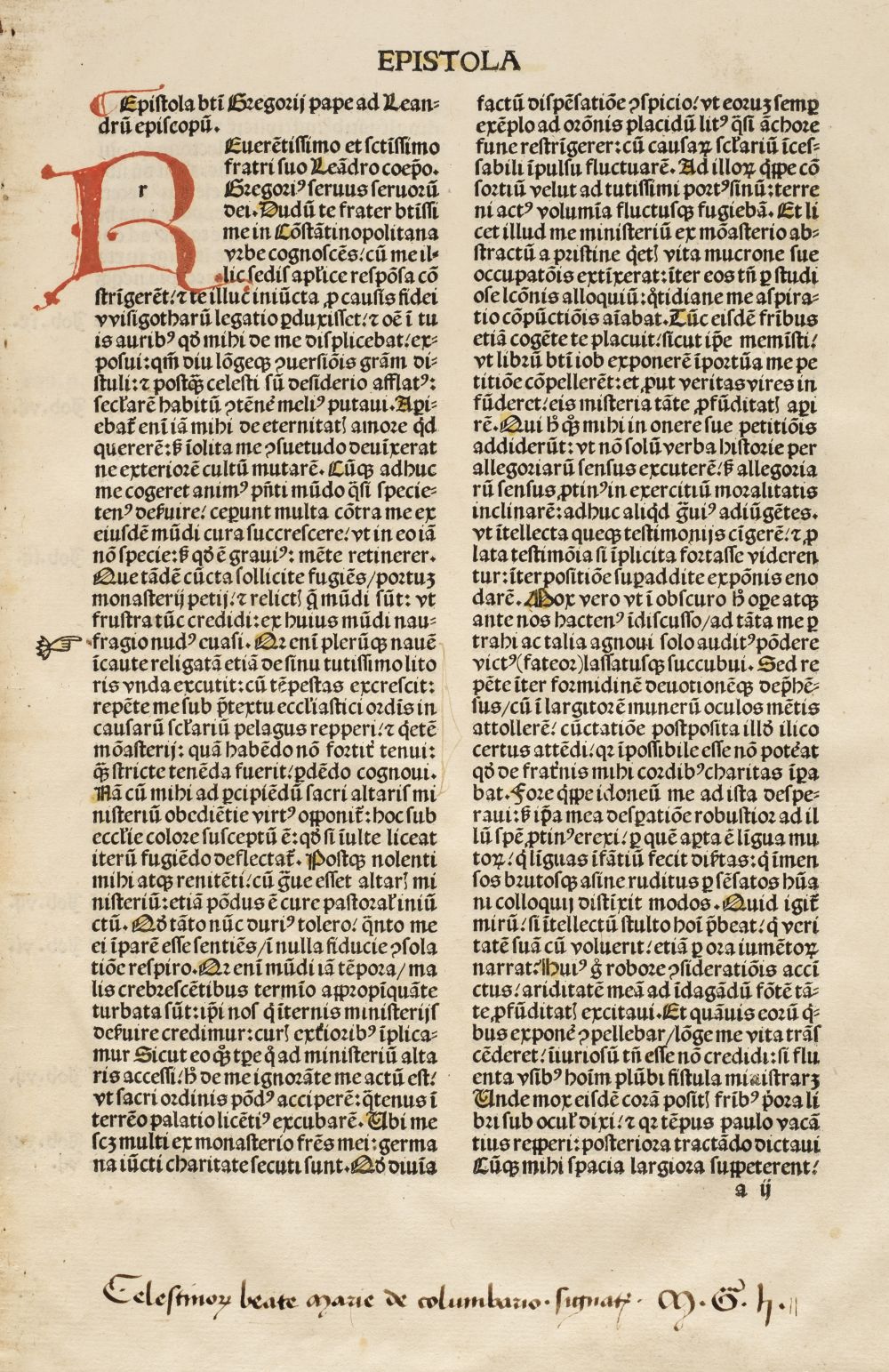



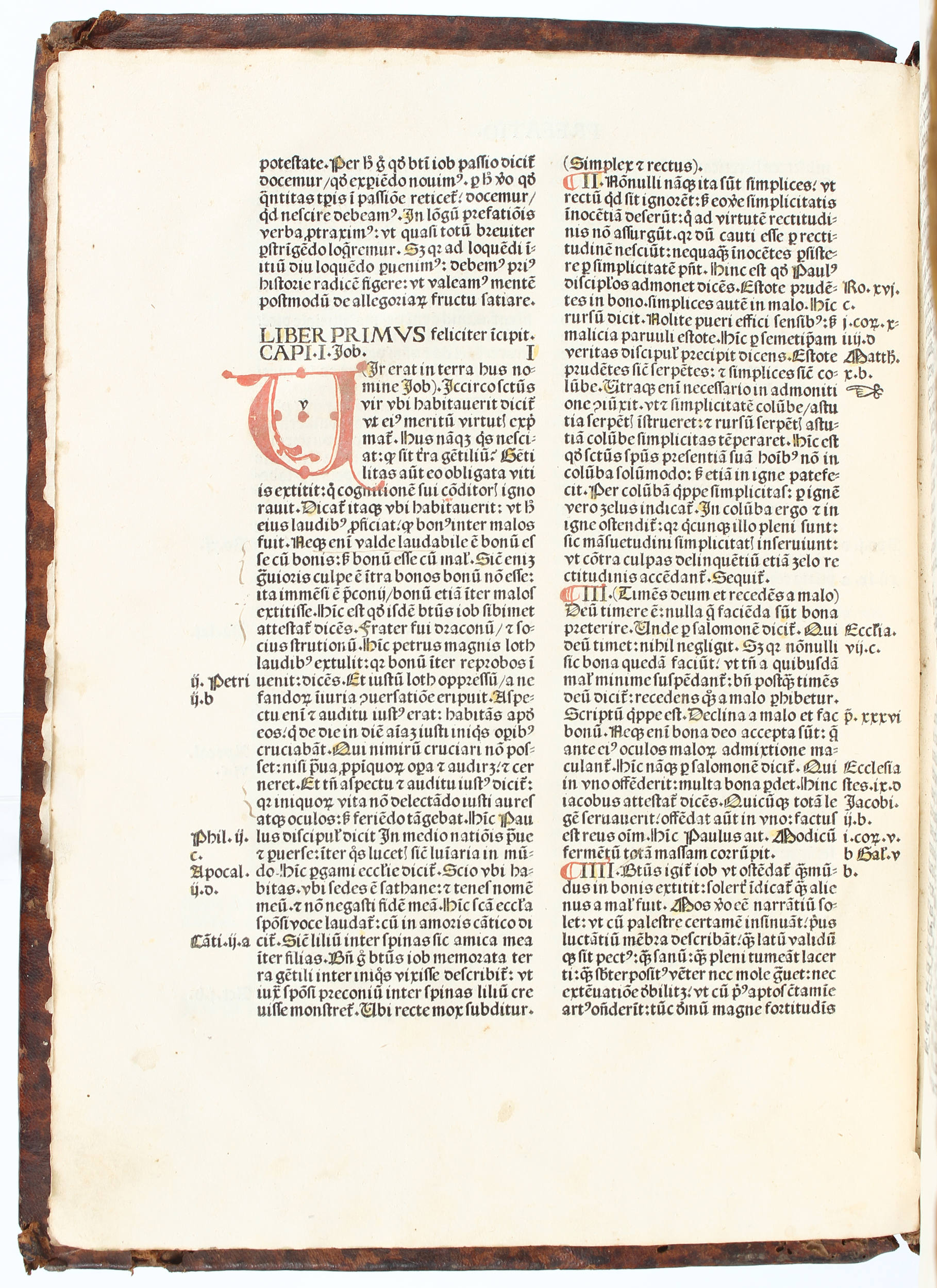

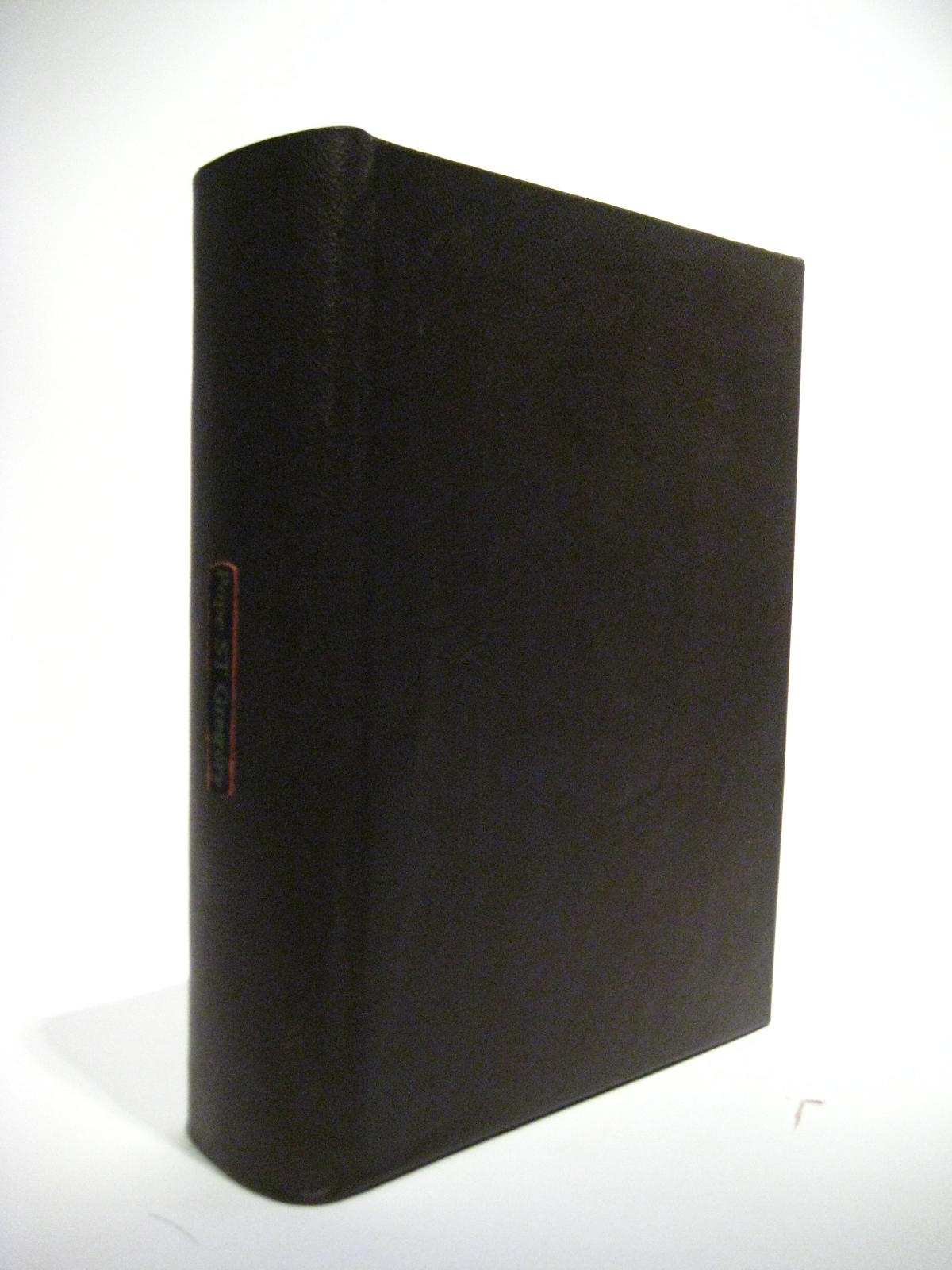
Try LotSearch and its premium features for 7 days - without any costs!
Be notified automatically about new items in upcoming auctions.
Create an alert